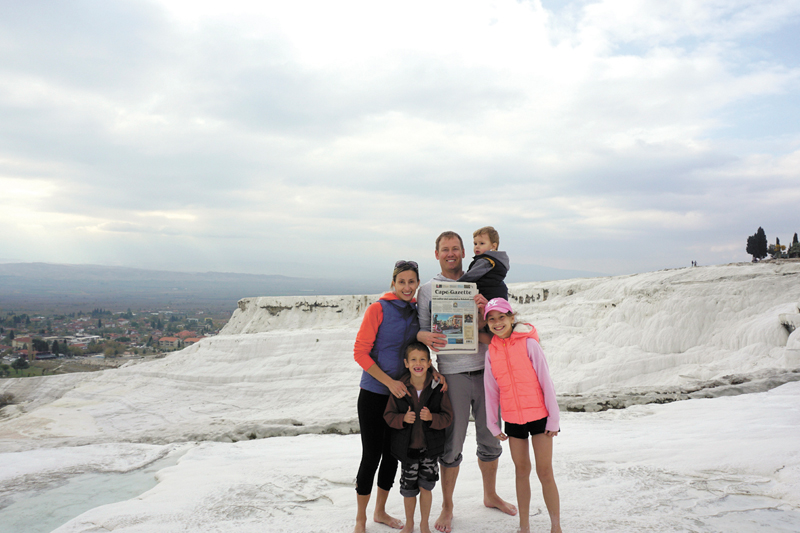Reading the Gazette atop cotton castle while visiting Turkey
In November, The Musin family traveled to Turkey for a special family vacation. They enjoyed many beautiful places in Turkey, but the most amazing part of the trip was visiting Pamukkale. According to Wikipedia, Pamukkale, meaning “cotton castle” in Turkish, is a natural site in Denizli in southwestern Turkey. The area is famous for a carbonate mineral left by the flowing water. It is located in Turkey’s Inner Aegean region, in the River Menderes valley, which has a temperate climate for most of the year.
Known as Pamukkale (Cotton Castle) or ancient Hierapolis (Holy City), this area has been drawing the weary to its thermal springs since the time of Classical antiquity. The Turkish name refers to the surface of the shimmering, snow-white limestone, shaped over millennia by calcium-rich springs. Dripping slowly down the vast mountainside, mineral-rich waters foam and collect in terraces, spilling over cascades of stalactites into milky pools below. Legend has it that the formations are solidified cotton (the area’s principal crop) that giants left out to dry.
Pictured (l-r) are Vera, Marat (holding the Cape Gazette and Michael,) Nikolas and Veronika while enjoying the beauty of cotton castle.
The Traveler Series is sponsored by
Bob & Cathy Cardaneo
302-945-4620
rcardaneo@CruiseOne.com
www.CruiseWithBob.com
























































